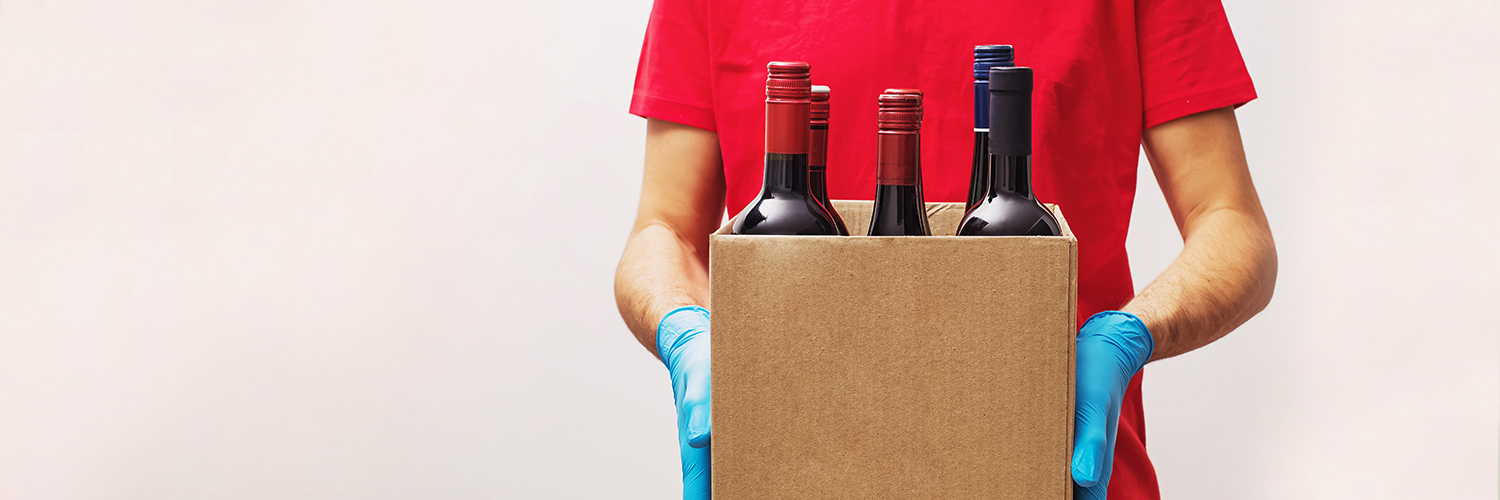The legal loopholes around online alcohol delivery mean that community standards are not being met when it comes to keeping children, families and the community safe.
This was the key message given in evidence by FARE CEO Caterina Giorgi to the NSW Public Accountability Committee’s Inquiry into the NSW Government’s management of the COVID-19 pandemic.
Drink Tank shares Caterina’s opening statement to the hearing on 18 September 2020 and questions from the Inquiry panel.
FARE’s opening statement
Now, more than ever, we all want to be doing what we can to keep our families and communities healthy and safe. For many of us, the COVID-19 pandemic has created a lot of fear, uncertainty, financial strain and social isolation. All of these factors increase the risk of harm from alcohol products in our homes, including family violence, alcohol use disorder, poor mental health, anxiety and suicide. If we’re not paying attention to these harms, then it is easy to miss them. But they are happening. And in fact, even before COVID-19 restrictions, the home is where most alcohol products are used, with alcohol companies selling about 80% of its products through bottleshops and online.
In May, when FARE and Women’s Safety NSW reached out to people working on the frontline of family violence services, 51% of them said they’d noticed alcohol was involved in more family violence incidents than before COVID-19 restrictions came into place. Data from the Australian Government’s National Alcohol and Other Drug Hotline shows that calls doubled in the months of March and April 2020, compared to the same period in 2019. Hello Sunday Morning’s Daybreak App has also experienced increased demand, with people using the App increasing by more than 50 per cent in April, and high levels of usage continuing. The data from some of the biggest alcohol retailers tells a similar story. Woolworths controls about half of the alcohol take away market in Australia. In the most recent quarter of April to June – total alcohol sales increased by almost one quarter (23.2%). Woolworths has also seen an increase in online alcohol sales by close to 30% (28.6%). While their rapid alcohol deliveries, have increased by 161%.
Given these changes in how alcohol retailers are pushing their products out into the community and into our homes, it is important the standards that we set for how they operate keeps pace. Our community expects alcohol companies to operate responsibly, that means ensuring that alcohol is not sold to children or to people who are intoxicated and that companies that sell alcohol do all they can to minimise the harms from their products. Many of these community expectations are not being met by companies selling alcohol online and delivering it. Just prior to the pandemic, FARE’s Annual Alcohol Poll found that 15 per cent of Australians had purchased alcohol online in the past 12 months, almost one in four of these had alcohol delivered at least weekly and only 38 per cent had their ID checked on delivery. Of those who had alcohol delivered within two hours, 70 per cent drank at risky levels, including 38 per cent who drank 11 or more standard drinks that day.
The Liquor Amendment Bill that is currently before NSW Parliament provides an opportunity to close these loopholes. This includes common sense measures such as:
- verifying age online when people are buying alcohol to ensure that alcohol is not sold to children,
- making sure that companies are not selling alcohol to people who are intoxicated,
- ensuring that they have certified Responsible Service of Alcohol training,
- making sure that alcohol is not sold into the home very late at night, when harm is more likely to occur, and
- introducing a two-hour delay between when alcohol is purchased and when it is delivered.
These common sense measures will help to keep families and communities healthy and safe by reducing and preventing harm from alcohol now and into the future.
“What we are talking about here are common-sense measures to help to keep families and kids safe.”
Questions and raised by the Committee
The Hon. JOHN GRAHAM: You referred to the Government’s 24-hour economy Bill. One of the good things about this Bill was that it was put out first as a draft exposure bill and then is being reintroduced now as a final Bill. That is quite unusual in the New South Wales Parliament and I actually think it was one of the very good things—that that process was being used. There has been debate, though, about whether some of the online sales measures in that Bill have been weakened in the move from the draft to the final Bill. Do you have a view on that now that the Bill has been introduced?
Caterina: Yes. There is a huge loophole in our current Liquor Act around online alcohol sales and delivery. It is a huge area of growth. The data that I used on Woolworths was a good indication of that because they control so much of the market. Things like checking for ID at the point of sale—that would mean that when someone jumps online their ID is checked and verified to make sure that they are 18. There are some really simple plug-ins that can be applied to do that, in the same way that a PayPal account is applied.
In the previous draft of the Bill there was a requirement to do that and now that has been watered down and has been pushed back to the regs. The argument is that we need to take more time on this, but we can do this and it is something that makes a lot of sense. None of us want alcohol to be sold to children. It is one of the areas where there has been some watering down. A lot of public health, children’s and community organisations are saying that this should be something that happens. It happens in bricks-and-mortar establishments so it should happen online.
The Hon. NATALIE WARD: I just wanted to ask about the exposure Bill and your comments on the Bill, particularly home delivery issues. Could you comment on those?
Caterina: Yes, absolutely. The Bill as it stands at the moment still includes a requirement to make sure that alcohol is not being sold to people who are intoxicated through online delivery. That is really great, but there has been a weakening of that age verification measure. It also still has quite weak provisions around Responsible Service of Alcohol. So, it allows the industry to create their own training or information around this, rather than requiring them to do the accredited Responsible Service of Alcohol training that all other alcohol producers, providers and people who sell alcohol have to do across New South Wales.
The other thing about the Bill is that it allows for alcohol to be sold into the home really late at night. The time was up until midnight in the draft Bill and now that says that between midnight and five a.m. there will not be sales. That means between five a.m. and midnight alcohol can be sold through online delivery. That is a vast majority of the day. That, we know, will create and contribute to greater levels of harm because we know more harm is likely to happen later at night. That includes increased risk of mental health concerns like suicide, as well.
We have been proposing a common-sense measure of stopping that between nine p.m. and midday. That would mean that people can still order a bottle of wine with their dinner or can plan to have alcohol delivered, but it stops that super-rapid delivery late at night. Rapid delivery is another huge thing. We know that rapid delivery is associated with more risky alcohol use. Rapid delivery is where you can phone a company like BWS or Dan Murphy’s and have them deliver to your house within 30 minutes. We know that that type of delivery is associated with high-risk use. And so, what we propose is a two-hour delay between when the order is made and the delivery comes to somebody’s House. That means it will not be used to top up and it will not be used to contribute to greater levels of intoxication and harm.
The full draft transcript is available here.







